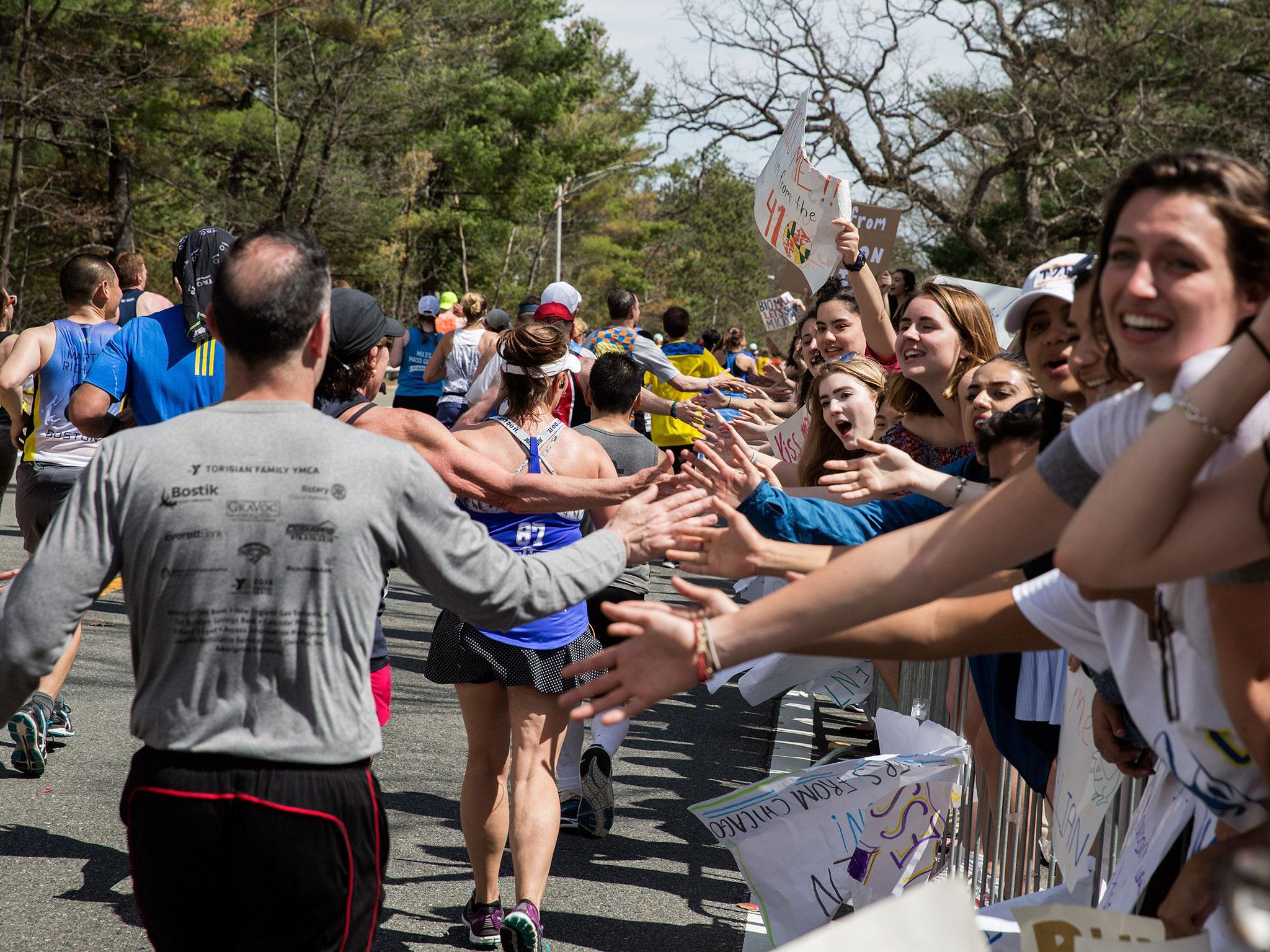Coronavirus: Boston Marathon canceled for the first time in its 124-year history
Organisers said on Thursday that they instead will have a “virtual event” in which participants who verify that they ran 26.2 miles on their own will receive their finisher’s medal

Your support helps us to tell the story
From reproductive rights to climate change to Big Tech, The Independent is on the ground when the story is developing. Whether it's investigating the financials of Elon Musk's pro-Trump PAC or producing our latest documentary, 'The A Word', which shines a light on the American women fighting for reproductive rights, we know how important it is to parse out the facts from the messaging.
At such a critical moment in US history, we need reporters on the ground. Your donation allows us to keep sending journalists to speak to both sides of the story.
The Independent is trusted by Americans across the entire political spectrum. And unlike many other quality news outlets, we choose not to lock Americans out of our reporting and analysis with paywalls. We believe quality journalism should be available to everyone, paid for by those who can afford it.
Your support makes all the difference.The Boston Marathon has been cancelled for the first time in its 124-year history.
Organisers said on Thursday that they instead will have a “virtual event” in which participants who verify that they ran 26.2 miles on their own will receive their finisher’s medal. The race had originally been scheduled for April 20 before being postponed for five months because of the coronavirus pandemic.
“While we cannot bring the world to Boston in September, we plan to bring Boston to the world for a historic 124th Boston Marathon,” said Tom Grilk, the CEO of the Boston Athletic Association.
Although the title of Boston Marathon champion is contested by a few dozen elite athletes, the field includes more than 30,000 recreational and charity runners, with as many as 1 million people lined up along the course trek from Hopkinton to Boston’s Back Bay. That presented organisers with a social distancing problem that won’t be solved by the fall.
The cancellation is the first ever for the race, which began in 1897 when 15 men drew a starting line in the dirt in Ashland and headed for the city to commemorate the first modern Olympic Games the previous year. In 1918, the format was modified to a relay due to World War I; the 2013 race was stopped when two bombs exploded at the finish line, several hours after the winners had finished but while many recreational runners were still on the course.

For each of those years, the race was held in April on the state holiday to commemorate the battles in Lexington and Concord that marked the start of the Revolutionary War. Traditionally, the Red Sox have scheduled their first pitch for the morning so baseball fans could wander over to Kenmore Square after the game to see the runners pass by with one mile to go.
In March, when the race was postponed to Sept. 14, Mayor Marty Walsh cited the desire to salvage the estimated $211 million pumped into the city’s economy each year. The Boston Athletic Association and marathon runners also raise about $40 million for charity.
Walsh said at the time that there was no thought of excluding the tens of thousands of amateur runners who consider running Boston a bucket list achievement. The Tokyo Marathon went on as scheduled in March with just over 200 elite runners but not the 38,000 recreational runners who had signed up; spectators at the Los Angeles Marathon were advised to practice social distancing.
“That’s not the Boston Marathon. We’re an inclusive marathon,” Walsh said. “The Boston Marathon is for everyone.”
The 2021 Boston Marathon is scheduled for April 19 and the 125th anniversary edition is scheduled for April 18, 2022. AP
Join our commenting forum
Join thought-provoking conversations, follow other Independent readers and see their replies
Comments